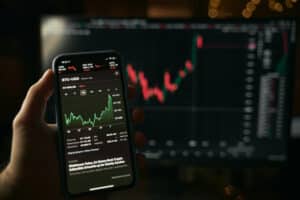
South Korea Classifies NFTs as Virtual Assets
The government of South Korea has decided to grant mass-produced NFTs the legal status of being a virtual asset.
It is important to note for context the NFTs are virtual assets if they receive considerable interest after listing on an exchange platform as per the new guidelines issued by the Financial Services Commission (FSC) of South Korea.
The FSC issued these guidelines in 2023 meaning that posits if an NFT project passes this legal requirement, it can be classified as a virtual asset. However, the condition is that the NFT project in question has to fulfill the FSC set requirements in order to qualify as a FSC-completed asset class.
FSC to Supervise NFTs
The local South Korean media outlet News1 published an update on this regard on 10th June noting that FSC is set to legally supervise NFTs in the same manner as digital assets.
However, the NFTs that have the same legal implications as digital assets are the ones that do not have any traits that set them apart as a virtual asset class.
As per the regulatory agency, in order to qualify for as a virtual asset class, NFTs have to be mass-produced, have the ability to be divided among retail investors, and can also be utilized as a means of payment.
When an NFT product consists of all of the aforementioned qualities it can be legally eligible as a virtual asset as per FSC rule.
Usage of NFTs as a Mode of Payment
According to the FSC rulebook, mass-produced NFTs may have a different impact on the crypto sector. The idea is that NFTs that have been unable to accumulate a lot of demand or traction among investors or amass considerable value will be put in a different financial category.
Meanwhile, there are some NFTs projects that have the ability to offer practical utility such as virtual tickets, or digitized certifications, stage passes, etc.
These types of NFTs that serve a practical purpose are dubbed as general NFTs. As per Jeon Yoseop, the head of Financial Innovation Planning at FSC South Korea exclaimed in a recent interview that NFTs that are available in massive quantities may be used as a mode of payment.
The government personnel further added that granted that there are 1 million NFTs in a single collection it could mean that it will have the ability to make a lot of transactions.
Furthermore, the official further added that NFTs also have a real-world utility in the form of making transactions.
However, regardless of these possibilities, FSC has retained that it will treat or classify each NFT project on an individual level. Under these circumstances, there are no set parameters for legal classification and regulations that are standardized for NFT regulations.
FSC to Treat NFTs as Securities Under the New Guidelines
As per the new guidelines issued by FSC, the regulatory agency also has a chance to treat NFTs as a security offering. The regulator has noted that it will mark an NFT project as a security if it meets any requirements mentioned in the Capital Markets Act of the national legislator.
Furthermore, South Korean officials have also issued guidelines to encourage stakeholders in the NFT sector to navigate their products in accordance with local laws.
Last year, FSC mandated that virtual assets that are deposited on an exchange platform have to receive interest. However, the regulator later amended the law noting that this rule is not inclusive of regular NFTs and does not apply to CBDCs.
At the same instance, there are also some other exceptions to the same rule such as a recent update issued by FSC that echoed a statement from last year again for the benefit of the cryptocurrency investors.
The statement has noticed that in the event that NFTs that are virtual assets if listed on a trading platform can qualify for interest. By the rule of proxy, it means that the mass-produced NFTs that are issued in massive numbers can be used to make payments and eligible for generating interest.




